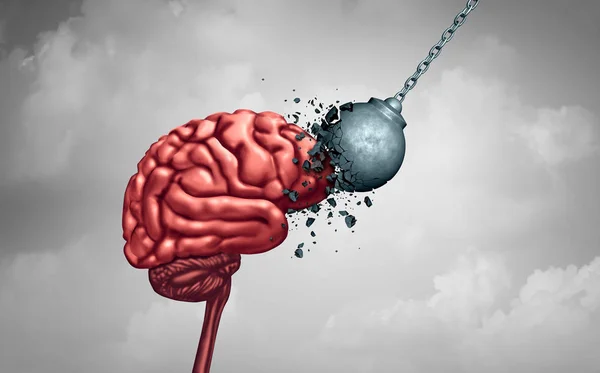
Resilience: What is it and how to be more resilient?
Have you ever wondered how we deal with the most difficult situations in our lives? How we respond to traumatic events such as the death of a loved one, unemployment, serious illness, or other catastrophic events? If you have ever lived or witnessed a situation of this type, you will have seen that not everyone reacts the same. Have you considered why? Normally, people manage to adapt over time to those more or less traumatic events that can drastically change our lives. In these cases, the ability to be resilient is what will allow us to better adapt and overcome these situations. But we are going to start by understanding what resilience is and then we will see some keys to develop it effectively.
What is resilience?
According to the Oxford English Dictionary resilience is he ability of people or things to recover quickly after something unpleasant, such as shock, injury, etc.
As far as the field of Psychology is concerned, although the term resilience has been defined on multiple occasions by various authors, it seems that it was the psychiatrists M. Rutter and B. Cyrulnik, inspired by the aforementioned physical concept of resilience, who introduced the term to Psychology to denominate it with two complementary definitions:
-
The ability of people to overcome adversity, tragedies or highly traumatic events.
-
The ability to recover and continue developing and living, even at a higher level with the development of resources unknown to the person, despite the difficult or traumatic circumstances they have gone through
It is as if the experienced trauma develops in these people resources that they did not know they had and in this sense, the concept of resilience would also be equivalent to the term “post-traumatic growth” widely used in psychology.
Therefore, we can speak of a person being resilient when they have been subjected to stressful life circumstances or adverse biological factors (tragedies, bereavements, family problems, serious illnesses, stressful work situations, etc.) and have been able to cope with them, overcome them or even be transformed by them. Resilience is a process that needs to be exercised requiring time and effort.
If you want to know if you are sufficiently resilient, there are different methods of evaluating this ability. One of them is the resilience questionnaire (CD-RISC, Connor and Davidson, 2003).
Among other elements, this scale addresses the concepts of commitment capacity, challenge, self-efficacy, action-oriented behaviors, resistance to discomfort, optimism, spirituality or adaptation to stressful situations, among others, as fundamental elements around the development of resilience.
Why is it important to learn to be more resilient?
Just because you’re more resilient doesn’t mean you won’t experience hardship or pain. Feeling strong emotional pain is logical and normal when we experience serious adversity such as trauma or personal loss.
However, continuing to develop your resilience capacity will undoubtedly help you face the adversities that life throws at you, better managing stress and feelings of anxiety and uncertainty.
According to Tedeschi, Park and Calhoun (1998), developing stronger resilience can develop positive changes such as: Greater appreciation of the value of life. More hope or sense that life offers new possibilities. Increased personal strength. Strengthening personal relationships.
How to be more resilient
Sometimes life brings a series of unsolvable problems or we experience emotional or physical trauma that for some reason we are unable or unwilling to resolve. In these cases, resilience is a good ally.
M. Seligman, the father of Positive Psychology, developed the PERMA model, in which he identifies 5 aspects that contribute to creating well-being, reducing stress and anxiety and, ultimately, developing resilience. Positive Emotion, Engagement, Relationships, Meaning, and Accomplishment.
Positive Emotions
Emotions are reactions with a positive valence (which generates well-being for us) or a negative valence (which generates discomfort), which are determined by the way in which we interpret a situation. Developing “positive” emotions such as joy, gratitude or satisfaction goes beyond just having pleasant sensations: cultivating them will open your mind, they will help you overcome difficult and complex moments and even come out of them stronger.
We are trying to increase the positive emotions, not to camouflage the negative ones, but using positive emotions as an instrument to help us cope better with the negative ones. I now propose the following exercise: think of three doors that were closed to you in the present or the past. Give yourself a moment to write them down and then also write down what other three doors were opened to you. What came up?
Engagement
According to Seligman, engagement is a commitment that you make with yourself to increase the time that you dedicate to activities in which you feel so involved that you enter, fully in the present moment, in a kind of “flow state”, in which space and time seem to stand still. Make a list of the activities that put you in the flow and after that, commit to doing some of these activities weekly or monthly.
Relationships
Human beings are social beings by nature and therefore, we have a need to be in contact and connection with others. As social beings, one of the irreplaceable sources of well-being and satisfaction are our relationships with others, since they constitute a source of support and protection. Having satisfactory relationships is necessary for healthy development, so we must take care of personal and work relationships. Working on our social skills can help improve our relationships.
Meaning
It’s all about finding meaning and meaning in life that goes beyond yourself and your own individual goals: What is your role in the world and what can you give to the world? Using your energy oriented towards one or several goals that make sense to you is a source of positive emotions and helps us better overcome difficulties. In this way, all our goals, our objectives and our achievements will have a more transcendental background that will endow them with greater social and moral value. There are many ways to make sense of our lives. Many people decide to volunteer, participate in different activities and/or organizations, develop certain skills, etc.
Accomplishment
It is about setting goals that, as they are achieved, increase your sense of competence and your level of autonomy. Looking at the past and feeling proud of having achieved a goal or a task will make you feel stronger and more secure. And, according to Seligman, this feeling is even stronger when the goals are intrinsic, as is the case with personal growth. It is easy to forget and overlook accomplishments, so 10 minutes before going to sleep, write down three achievements that went well for you that day and why those positive events occurred. Do the exercise for at least a week.
Building resilience is a personal journey that requires commitment and work. You should also keep in mind that a strategy to develop resilience that works for your friend may not work for you, and if you feel that you are struggling to understand and/or manage what you feel, you should seek help from a professional healthcare working or therapist.
You can find a list of English-speaking therapists in the ESHA Spain business directory
https://eshaspain.org/directory/categories/english-speaking-counsellors-therapists/





Leave a reply